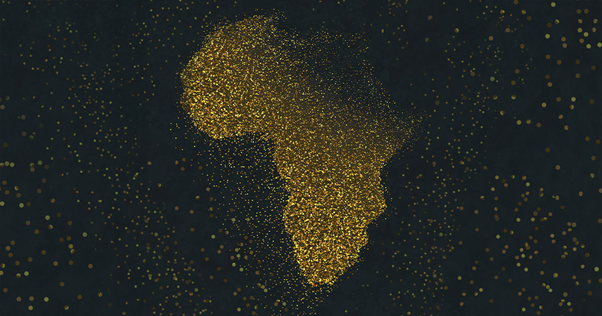The rise of millionaires in Africa : an unprecedented growth dynamic
Africa is undergoing a major economic transformation, with a significant increase in its population of millionaires. According to the Africa Wealth Report 2025 published by Henley & Partners and New World Wealth, the continent’s millionaire population is expected to grow by 65% over the next decade. This dynamic reflects robust economic growth and the emergence of new wealth hubs… without guaranteeing a positive impact on the continent’s socio-economic development.

In 2025, Sub-Saharan Africa’s economy is expected to grow by 3.7%, surpassing Europe (0.7%) and the United States (1.4%), according to the recent Africa Wealth Report 2025 by Henley & Partners and New World Wealth. This expansion is fueled by key sectors such as fintech, sustainable tourism, software development, green technologies, e-commerce, rare metals mining, healthcare, biotechnology, media, entertainment, and wealth management.
“Africa’s sustained economic expansion, combined with significant growth in high-net-worth-individual (HNWI) populations, positions the continent as a key player in the evolving global wealth landscape,” comments Dominic Volek, Group Head of Private Clients at Henley & Partners. “The investment migration sector is now working both ways, with African investors seeking greater global mobility and diversification, while international investors are increasingly identifying Africa as a destination for long-term, stable capital deployment.”
The wealthiest countries on the continent
South Africa remains the leader in terms of wealth, with 41,100 millionaires, representing about one-third of the continent’s millionaire population. However, its millionaire population has declined by 6% over the past decade due to capital outflows, weak economic growth, and political uncertainty.
Morocco, by contrast, has recorded significant growth in its millionaire population (+40%) and is now an important regional financial hub.
Johannesburg remains Africa’s wealthiest city with 11,700 millionaires, supported by the Sandton business district and luxury residential enclaves in the emerging Waterfall–Midrand region. However, Cape Town, with 8,500 millionaires, has seen strong growth in centi-millionaires, reaching 35 ultra-wealthy individuals.
Regions such as the Black River district in Mauritius (+105%), Marrakech (+67%), and the Whale Coast in South Africa (+50%) have experienced rapid growth in their millionaire populations over the past decade.
Despite this growing prosperity, mobility restrictions remain a major obstacle. A study published by Henley & Partners in January 2025 revealed that while globally one in six Schengen visa applications is rejected, one in two applications from an African country is denied.
In response to these challenges, more and more wealthy Africans are adopting “global positioning” strategies by acquiring residence rights and alternative citizenships. Henley & Partners has processed applications from investors in 23 African countries over the past 18 months, nearly double the number compared to 2020.
Investment in innovation and sustainability
Global interest in financing African small and medium enterprises, which represent 80% of jobs but often face limited access to capital, is increasing. For example, Google recently announced a $25 million initiative for food security and artificial intelligence in Africa.
The role of women in the green economy
Nontobeko Ndhlazi, Group CFO of WIPHOLD, emphasizes that “the full potential of this social dividend, where approximately half of Africa’s youth are women, holds immense possibilities.” She highlights the crucial role of women, particularly in rural areas, in the agricultural sector and their inherent understanding of environmental sustainability.
While the growth of the number of millionaires in Africa is undeniable, it does not automatically guarantee a positive impact on the continent’s socio-economic development. A concentration of wealth in a small number of individuals can exacerbate inequalities and limit spillover effects on employment, education, or local infrastructure. As Justice Malala notes, “The challenge for Africa is to transform private wealth into an inclusive economic ecosystem, where opportunities multiply for all.” Public policy, equitable redistribution, and investment in human capital therefore remain essential for this rise in private wealth to truly benefit society as a whole.
If African leadership can harness the momentum of economic growth while tackling political dysfunction with equal resolve, the continent may yet turn this moment of paradox into one of transformation
Commenting on the report, best-selling author and leading political analyst Justice Malala states: “Africa’s story remains one of dualities. Its economic trajectory reveals resilience and promise, bolstered by institutional innovation and growing investor confidence. Yet these exist alongside deep political fractures and governance setbacks. If African leadership can harness the momentum of economic growth while tackling political dysfunction with equal resolve, the continent may yet turn this moment of paradox into one of transformation.”






